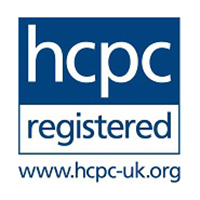PRAGUE PSYCHOLOGY SERVICE
Therapeutic Models Used
This section contains a brief summary of the different therapy models used by Dr Kloss.
Schema Therapy, developed by Dr Jeffrey Young, is a longer term relational psychotherapy originally developed for people with a diagnosis of Borderline Personality Disorder. It has since been extended to use with other personality disorders, as well as other complex, long-term problems. It combines some of the main ideas of CBT but has integrated ideas and strategies from other models such as psychodynamic theory, Gestalt and attachment theory.
Schema Therapy is based on the principle that, as a result of universal core needs (e.g. the need for security, safety, love, autonomy, realistic limits) going chronically unmet in childhood, a person develops schemas. Schemas are pervasive and fixed clusters of thoughts, feelings, images, memories and bodily reactions that we develop and carry with us through our adult life, getting activated in certain situations and causing strong and distressing emotional responses. Children start to develop coping behaviours to deal with their schemas and these have often become reinforced and fixed by adulthood. These coping behaviours, while almost always helpful when they first form, are often no longer appropriate in our adult lives and consequently cause difficulties for us. Schema Therapy, through harnessing the therapeutic relationship and integrating experiential, cognitive and behavioural strategies, focuses on identifying and healing schemas, and changing unhelpful patterns of coping behaviour. In addition to personality disorders, there is growing evidence indicating the effectiveness of Schema Therapy with a range of other presentations, including PTSD, anxiety and OCD.
Cognitive Behavioural Therapy (CBT) is a widely-used, short-term psychological treatment. It is a way of helping people solve problems and improve the way they think and feel. CBT is based on 2 principles:
- Our thoughts and beliefs are connected to our behaviours, moods and physical experiences and to the events in our lives.
- Our perception or interpretation of an event affects our emotional, behavioural and physiological responses to that event. In some cases our interpretations are distorted by our prior experiences or expectations, and our beliefs about ourselves and other people.
CBT concentrates on identifying these distorted/negative thought patterns as these often underlie low mood, anxiety, low self-esteem and many other psychological problems. CBT looks at how problems are maintained in the “here and now”. It helps people to learn new ways of coping and problem solving which can be used for the rest of their lives.
CBT is an evidence-based treatment which means it has been proven to work. It has been shown to be effective in treating a range of psychological problems, including depression, anxiety disorders, post-traumatic stress disorder and psychosis. It is recommended as the treatment of choice for many psychological difficulties by the UK government in their NICE (National Institute of Clinical Excellence) guidelines.
Acceptance and Commitment Therapy (ACT) is a so-called third-wave therapy. While it incorporates some elements of traditional CBT, it focuses less on changing negative thinking patterns and more on learning to tolerate and accept distress. The aim is for clients to begin to accept their difficulties as part of life and commit to making necessary changes in their behavior, regardless of what is going on in their lives.
Dialectical Behaviour Therapy (DBT) is another third-wave therapy. It is an evidence-based treatment for Borderline Personality Disorder but is also used with other presentations, particularly where emotional dysregulation is an issue and a person tends to experience overwhelming emotions and display behaviours which harm themselves or their relationships. It seeks to balance the need to change harmful patterns of behaviour with the need to accept aspects of our lives and situations that cannot be changed.



